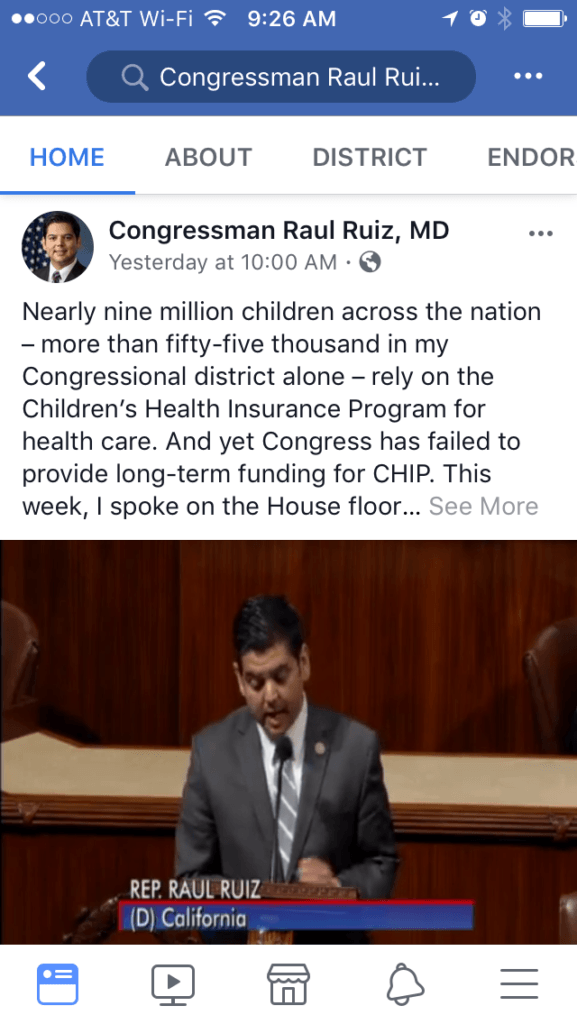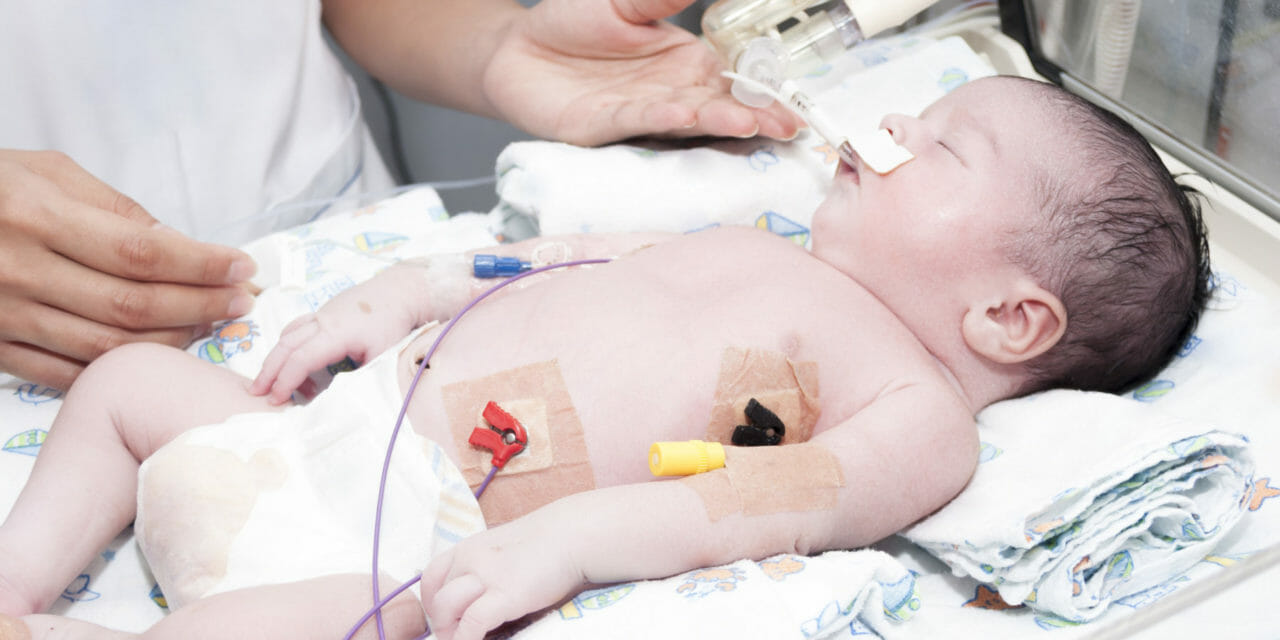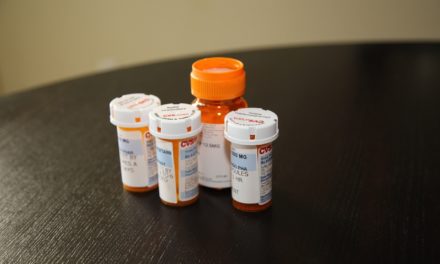Nearly 9 million children across the nation – and more than 55,000 in California’s 36th Congressional District — rely on the Children’s Health Insurance Program (CHIP) for their health care. They are at risk of losing their coverage in February because of a funding shortfall, which could translate into serious health consequences for many, especially those with chronic illness such as cancer.
Democratic U. S. Congressman Dr. Raul Ruiz, who represents the 36th Congressional District, delivered an impassioned speech on the House floor Thursday in defense of CHIP, which caters to low-income families.
“The deadline to fund CHIP passed and Congress has failed to provide long-term funding for the program, kicking the can down the road and leaving parents worried about whether or not their child will get the health care they need because they are no longer covered — in the middle of a flu season no less,” Ruiz said.
For decades, Republicans and Democrats have come together to fund a bipartisan and noncontroversial CHIP program, Ruiz argued.

U.S. Congressman Raul Ruiz advocates for CHIP on the House floor.
“It’s unacceptable that this time around Republican leaders proposed paying for CHIP by cutting other critical public health programs that CHIP recipient kids rely on, , like, vaccines,” Ruiz said. “This is unconscionable. Stop using children’s health care as a partisan weapon. Kids and parents deserve better. We must put our children’s needs above partisanship and provide for the health of our children with a bipartisan long-term funding solution for CHIP.”
A new report by the Georgetown University Center for Children and Families estimates that if Congress does not approve funding for CHIP in January, an estimated 24 states (including D.C.) could face CHIP funding shortfalls. Coverage beyond February is most at risk for approximately 1.7 million children in 21 of the 24 states with separate CHIP programs. These states, in order of size of enrollment, are: NY, PA, FL, GA, CA, VA, AL, CO, WA, NV, MO, KY, MT, UT, ID, CT, AZ, LA, SD, MN, and DC.
CHIP expired on Sept. 30, 2017. States were able to continue to operate their programs in the short term with leftover CHIP allotment funds from fiscal year 2017. If these funds ran out, they were supplemented by a proportional share of unused funds from prior fiscal years reserved in a “redistribution” pool.
Just before the December recess, Congress approved $2.85 billion in CHIP funding in a so-called “patch” as part of the Continuing Resolution (CR). That money was supposed to help states get through at least March, but it’s coming up short. The Centers for Medicare & Medicaid Services last week said it couldn’t guarantee funding to all states past Jan. 19.
The CR also changed the way that redistribution funds are awarded to states, no longer guaranteeing a specific share of these emergency shortfall funds to any state.
Republicans and Democrats on Capitol Hill say they want to continue CHIP, but they have been unable to agree on how to fund it.
The Trump Administration says it’s up to Congress to renew it.





![Enrolling Now, Rewarding Careers Ahead [Sponsored]](https://ukenreport.com/wp-content/uploads/2024/04/COD_heroes_1-1385-2-440x264.jpg)

